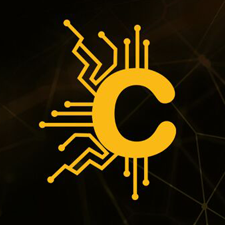Search the Community
Showing results for tags 'crypto'.
-
Your gateway to the next MEME-COIN EXPLOSION 💥 Full ownership | No analogs | AI-powered | 100% Launch-ready 💰 AUCTION DETAILS Starting Price: $750,000 Buy It Now: $1,500,000 End Date: August 1, 2025 @ 23:59 UTC Contact: @InfinityNeon on Telegram https://medium.com/@vadimakimov1984/auction-selling-a-fully-developed-ai-crypto-ecosystem-wrmb-bot-game-website-a404a7a915cf 🤖 What is WRMB? WRMB (World Rocket Meme Bot) is the world’s first "3-in-1" crypto ecosystem inside Telegram. It combines: AI-powered Token Scanner Bot Play-to-Earn Game (burn & earn logic) Telegram Community + Live Tokenomics Website: rocketmeme.bot 🔍 Components Included 🤖 RocketMemeBot: AI-based Telegram bot 🎮 PlayWRMB Game: Burn 999,000 wmrb → mint 1,000 $WRMB 🌐 Website: Fully connected to bot/game/token 📣 Telegram Channel + Chat: Active community 💾 Full source code: bot, game, website, visuals 💼 Server (preconfigured): $45/month 📚 100+ forum posts: Bitcointalk, Reddit, Hackernoon 🧩 Bitcointalk Auction 🇷🇺 Bits.Media Thread (RU) 🌍 AltcoinsTalks Listing 🔥 Why This is a Once-in-a-Lifetime Buy The token $WRMB has NOT been launched yet — by design. ✅ You're buying the fuse before the explosion ✅ The system is 100% functional and tested ✅ You control the launch moment, hype, price Tokenomics: 🔥 50% Burn 💧 20% Liquidity 🎮 20% Game 🧠 5% Team 📢 5% Marketing Launch on Solana → Fast rocket 🚀 Launch on TON → Organic community growth 🌱 💎 What Makes WRMB Unique Combines AI, GameFi, token analytics in Telegram All components work together in a closed-loop economy Real Play-to-Earn logic Fully documented, branded, and SEO-prepared Built with soul, $25k+ budget, and 12 months of development 💬 Want to See It In Action? 📲 Telegram: @InfinityNeon 💼 Ready for demo, Zoom call, or even in-person meeting in Germany. 🏁 You’re Buying a Fully Scalable AI-Powered Crypto Empire Next time you see WRMB — it might already be live, listed, and 5x more expensive. Don't wait.
-
- crypto
- cryptocurrency
-
(and 1 more)
Tagged with:
-
MTPX - A cryptocurrency based on BEP20 protocol of the Binance Smart Chain. The vision of Metapex (MTPX)- To remove the technical shortcomings that limit the growth of DeFi by building a protocol that directly supports the technological needs of DeFi. MTPX is in an effort to develop a private, easy to use and fast currency that is easy to be deployed in an environment that is resource-constrained to the users.
-
Hello Top Gold Forum Member, We are Crypto Development Software company. We love to help organization through our software such as MLM software, ICO Development, Wallet Development and more.
- 1 reply
-
- bitcoin mlm
- ico development
-
(and 1 more)
Tagged with:
-
Hello Top Gold Forum Member, We are Crypto Development Software company. We love to help organization through our software such as MLM software, ICO Development, Wallet Development and more.Â
- 1 reply
-
- bitcoin mlm
- ico development
-
(and 1 more)
Tagged with:
-
I am shariar porosh from Bangladesh, I'm new the crypto world. I have joined this forum to know new something and get a better idea. that's it
-
- 1
-

-
I am shariar porosh from Bangladesh, I'm new the crypto world. I have joined this forum to know new something and get a better idea. that's it
-
- 1
-

















